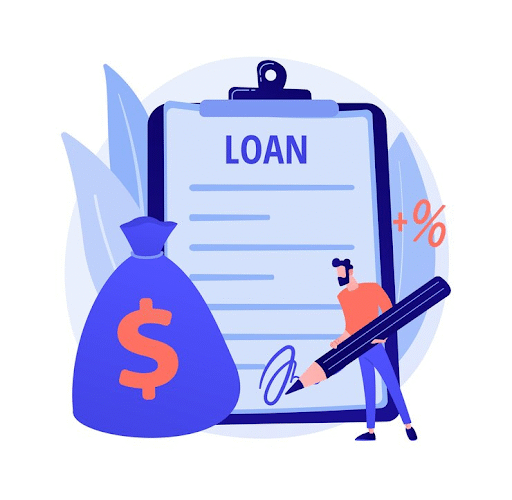Top Financial Products to Boost Your Credit Score in 2025
- Only 22% of Americans have a credit score of 800 or higher, according to The Ascent.
- About 13.2% of U.S. consumers fall into the “poor” credit category (scores between 300–579), as reported by Experian in Q3 2024.
Clearly, struggling with a low credit score is more common than most people realizet. And it isn’t just a number—it leads to higher interest rates, limited loan approvals, insurance restrictions, and even missed job prospects. The financial toll can be steep, delaying milestones like homeownership and draining thousands in extra interest. With lenders tightening criteria in 2025, those with low scores will face tougher barriers.
But here’s the upside. You don’t have to stay stuck. There are powerful financial products designed to rebuild and improve your credit score—faster and more strategically than ever. In this blog, we’ll explore the most effective options available in 2025—so you can take control of your financial future.
Top Financial Products To Boost Your Credit Score
Credit Card Financial Products
Not all cards are created equal, and certain types are specifically designed to help people with poor, limited, or no credit history build a strong foundation. Below are four powerful credit card options that can jump-start your credit journey when used responsibly:
Secured Credit Card
A secured credit card is a financial tool that requires a refundable cash deposit, which acts as collateral for the credit line. This deposit typically matches your credit limit—for example, a $500 deposit allows a $500 credit limit. It works much like a regular credit card, allowing purchases and requiring monthly payments. However, the upfront deposit reduces the lender’s risk, making it ideal for people with poor or no credit history. Payments, credit utilization, and account activity are usually reported to major credit bureaus, which helps build or rebuild your credit score if used responsibly. Failing to pay on time can result in loss of the deposit, but responsible usage, like paying balances in full and on time, can lead to credit score improvements and even qualification for unsecured cards over time. Though secured cards often come with lower limits and additional fees, they are an effective gateway to establishing healthy credit habits.
Authorized User on a Credit Card
An authorized user is someone added to another person’s credit card account with permission to make purchases, often using their own card linked to the account. While they can spend, they’re not legally responsible for payments—the primary cardholder bears that burden. However, the account’s activity may appear on the authorized user’s credit report, which can positively influence their credit if the primary user maintains low balances and timely payments. However, poor management by the primary cardholder, such as missed payments or high balances, can harm the authorized user’s credit as well. Becoming an authorized user is a low-risk way to build credit, but it requires trust, communication, and clear spending boundaries to avoid financial strain or relationship issues.
Retail store credit card
This product can help improve your credit score by contributing to key areas of your credit report, especially payment history and credit utilization. These cards are easier to qualify for than traditional credit cards, making them accessible for individuals with low or no credit. Once approved, using the card regularly and paying off the balance on time each month shows lenders that you can manage credit responsibly. This builds a positive payment history, which is the most heavily weighted factor in credit scoring models. In addition, if you maintain a low balance, your credit utilization ratio remains favorable—another important score factor.
High-Limit Credit Card
One of the most important factors in credit scoring is your credit utilization ratio—the percentage of available credit you’re using. A higher credit limit means you can keep this ratio low even with moderate spending. For example, spending $500 on a $5,000-limit card shows only 10% utilization, which is favorable to credit bureaus. These cards also contribute to payment history, the top scoring factor, by allowing consistent on-time payments. Over time, this track record signals strong credit management to lenders. High-limit cards are usually granted to borrowers with good credit, but some issuers may offer them as an upgrade or after proving responsible use of a starter card.
Credit Builder Loan
A credit-builder loan is designed to help individuals build or repair their credit when they have little or no credit history. Unlike traditional loans, where funds are given upfront, a credit-builder loan involves the borrower making payments toward the loan before receiving the full amount. This arrangement mitigates risk for lenders and encourages borrowers to make consistent, on-time payments, which are then reported to credit bureaus like Equifax, Experian, and TransUnion. By making timely payments, borrowers show they can manage credit responsibly, which has a direct, positive impact on their credit scores. Loans typically range from $300 to $1,000, with terms between 6 to 24 months, offering a solid way to establish or improve credit.
Self-reported rent payment
Self-reported rent payment services allow renters to have their rent payments reported to credit bureaus like TransUnion, Equifax, and Experian. This helps build credit without taking on new debt, especially for those with little or no credit history. Many services offer retroactive reporting, adding up to 24 months of past on-time payments, quickly boosting your score. By improving payment history, a key factor in credit scoring, this service can raise your score in as little as 30 to 45 days.
Experian Boost
Experian Boost is one of the top financial products in 2025. It is a free tool that helps improve your credit score by incorporating payments typically not reported to credit bureaus, such as utility bills, rent, and streaming services. By linking your bank account to Experian, the tool identifies eligible payments and adds them to your Experian credit report. These positive payment histories can improve your FICO® Score, especially for those with limited or thin credit files.
The process is simple: after linking your bank account, you verify and confirm the data before it’s added to your report. The updated FICO® score is provided in real-time. On average, users see a 13-point increase in their score. Experian Boost only affects your Experian credit report, and it doesn’t harm your score if no eligible payments are found. It’s a quick, easy way to improve your credit standing.
Conclusion
Consistent, responsible use, timely payments, keeping balances low, and monitoring your credit are the habits that transform these financial products into stepping stones toward better credit. So if your credit score is holding you back, remember: it’s not permanent. Start today, stay committed, and your future self will thank you. And when you’re ready to take that next step with expert guidance and support, Reliant Credit Repair is here to help. We specialize in personalized credit repair strategies that go beyond automated tools. Our team works directly with you to identify obstacles, dispute inaccuracies, and fast-track your path to better credit using both time-tested methods and the latest financial products.



